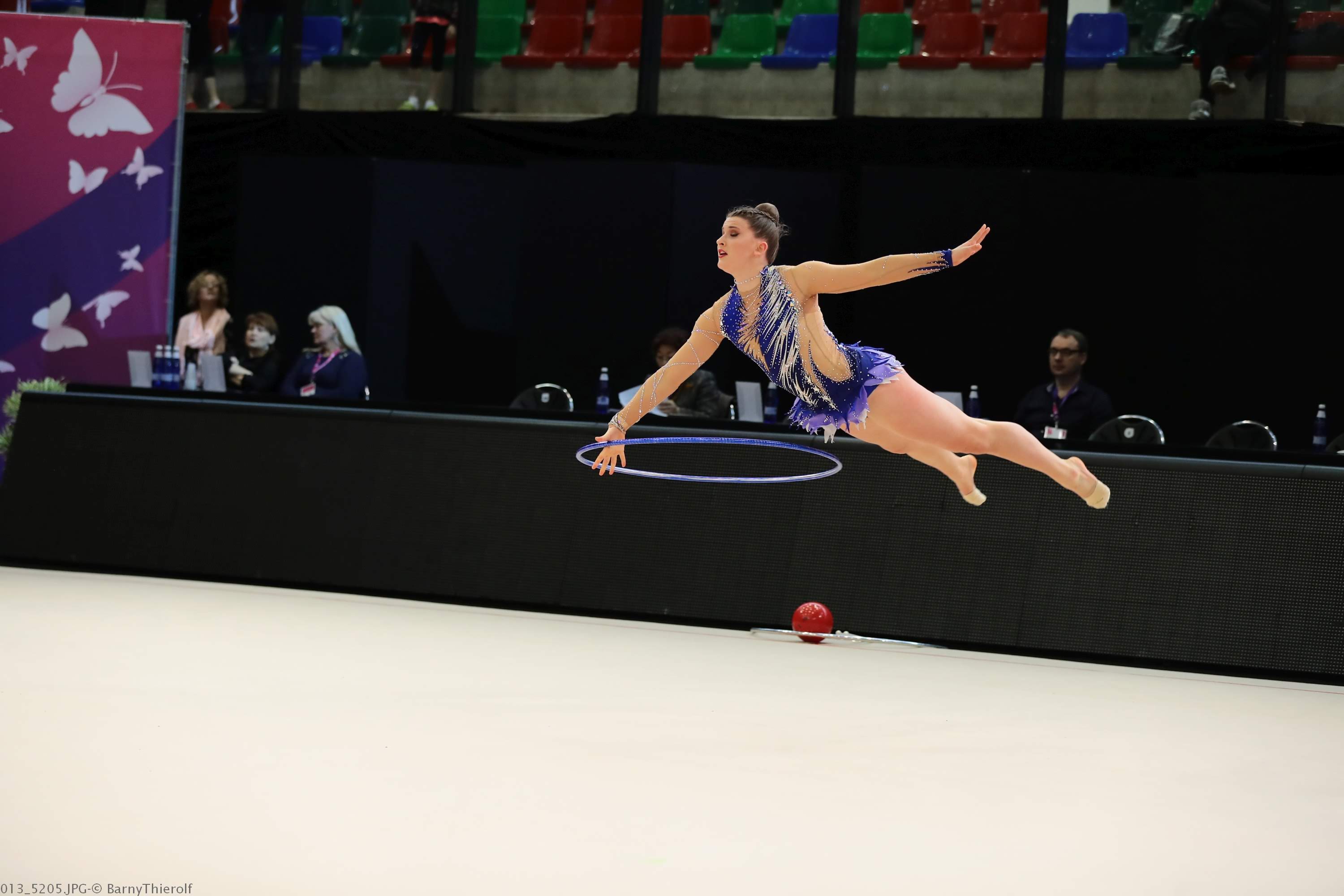Sofia Ivanchikov moved from Edmonton to Vernon, B.C., at the age of 13 to chase her dream of competing in the sport of rhythmic gymnastics at the highest level. Little did she know she was drawing up the routine for a life after sport.
“When I was 12, I realized if I wanted to do gymnastics seriously I had to do it [in BC],” says Ivanchikov, who is now in her first year in the Faculty of Kinesiology, Sport, and Recreation at the University of Alberta. “It was a lot of training, up to like 30 hours a week. Really intense but I really loved it. And it gave me a lot of experiences and just a lot of life experience in general.”
The sacrifices—being away from loved ones, endless training sessions, injuries, missing school—would eventually pay off. Her talents elevated her to the national level taking her to competitions across Canada and the United States but also to places like Estonia, Portugal and the Bahamas.
Unfortunately, competitive gymnastics is a sport where very few make it through without injury and Ivanchikov was no exception.
“The sport is just so hard on your body,” she says. “I saw my physiotherapist every three weeks or so ... for sure that’s where my interest came out of.”
Ivanchikov’s trips to fix her ailing body turned into more than a vested interest.
“I just wanted to learn more, and then taking biology classes in high school and learning about all of the different systems of the body was super interesting to me,” she says.
“When it was time to do something else, I figured kinesiology, physiotherapy or sports medicine, something like that would be right up my alley. That’s where the inspiration came from.”
Injuries forced Ivanchikov out of rhythmic gymnastics, at the competitive arm of it, and back home at the behest of her mother, for Grade 12.
She threw efforts into school but never strayed too far from the sport she loved, trading in her leotard for a clipboard as a rhythm gymnastics coach in Edmonton.
When it came time to select a university, Ivanchikov’s 95 per cent Grade 12 average would have landed her at just about any post-secondary institution. With help of the President’s Entrance Citation—which awards $12,500 annually for up to four years to students entering an undergraduate degree program on the basis of grades—she chose the University of Alberta.
“Obviously the scholarship really helped me to pick the U of A, but I probably would have come because of its good physio and kinesiology programs,” she says.
Ivanchikov is also a self-starter, another skill left over from her days as an elite athlete. It's a skill that has served her well during this particularly challenging first year.
“With my training background, I always missed 70, 80 per cent of my schooling, so it was a lot of self-teaching, catching up and communication with teachers,” she says. “ It’s not that big of an adjustment for me to take matters into my own hands and guide my own learning.”
As for what the future might hold, Ivanchikov says she definitely likes the idea of physiotherapy, but has also recently begun thinking about pediatrics, or a related medical field.
“It’s just so cool to understand little things,” she says. “Learning all the muscles of the body and thinking, ‘Oh, that’s the one that I injured,’ and connecting back to my own experiences.”
This document has been composed with the free online HTML edior. Access it here and use it every time for document editing.
